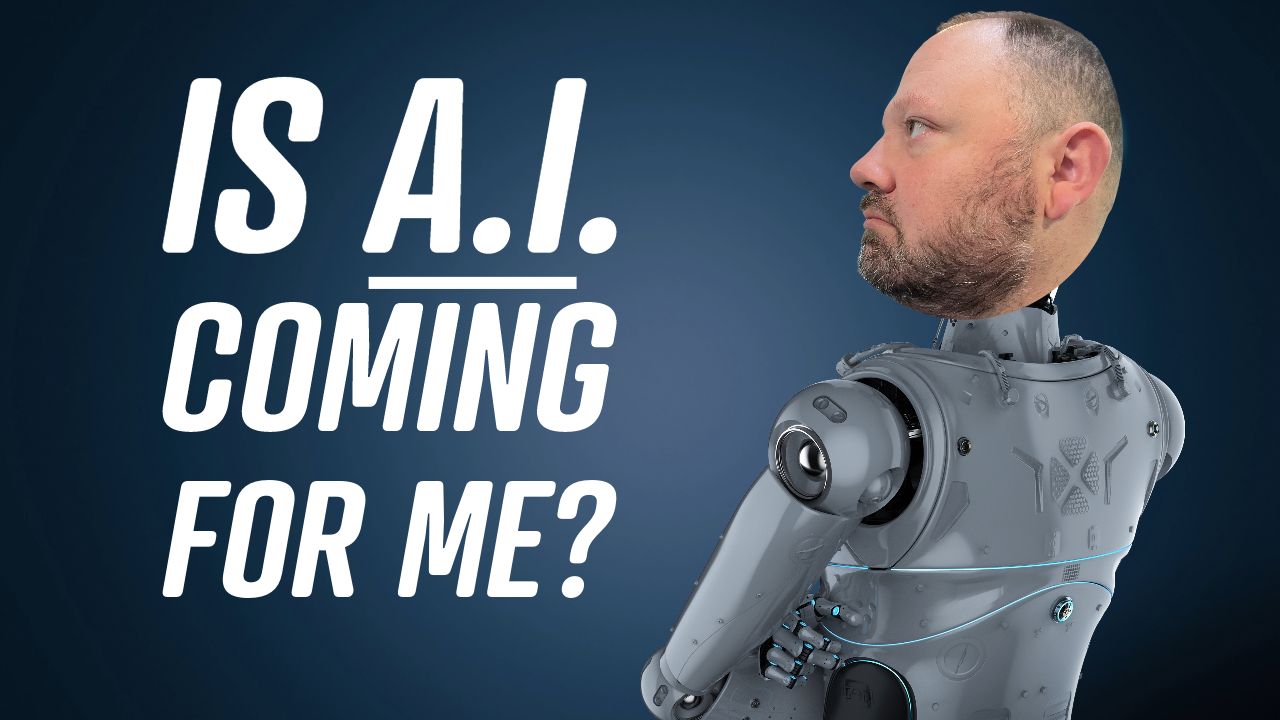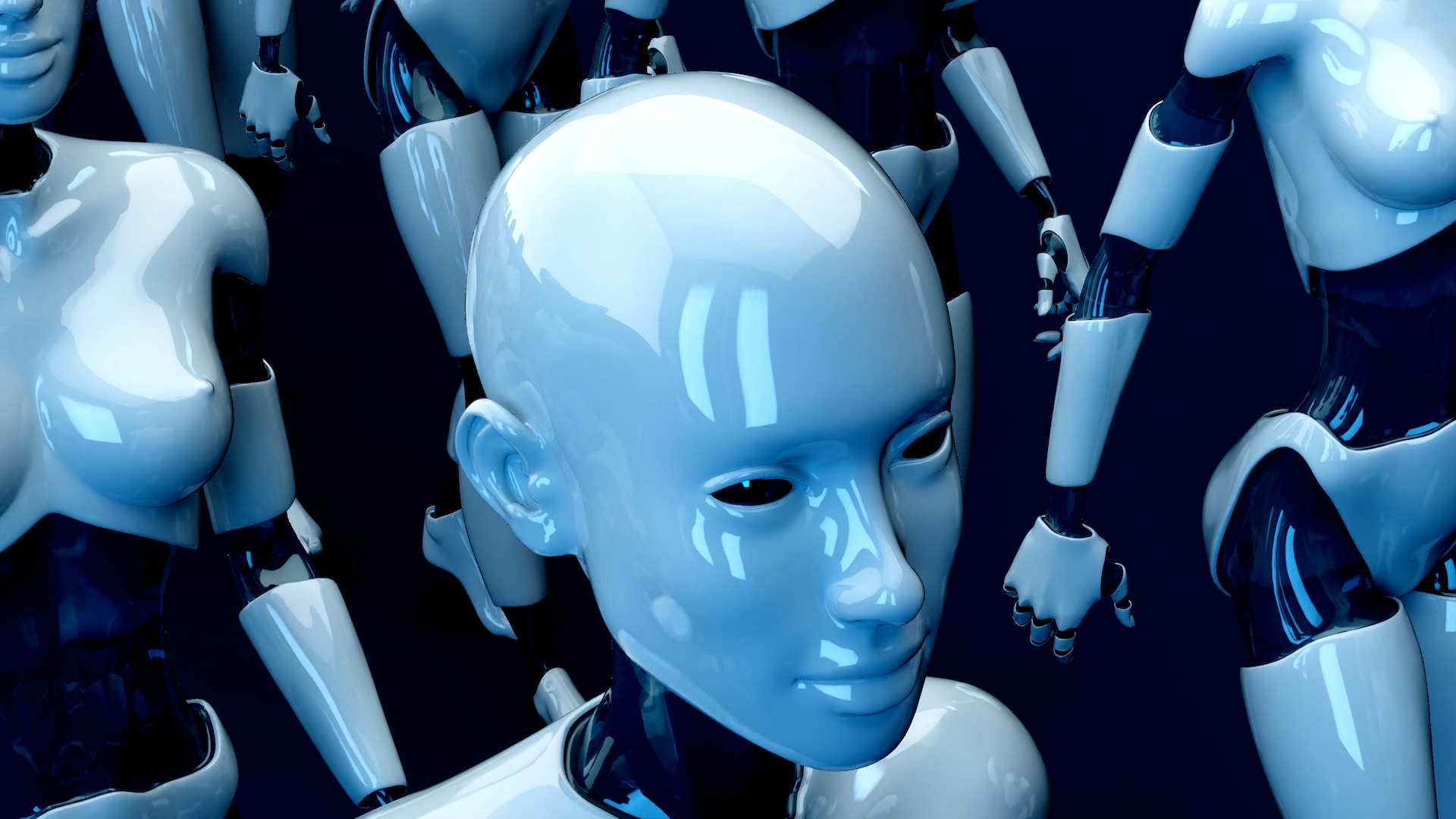Will Voice Actors Be Replaced By AI?
Oct 02, 2023
Machines vs. Man: AI’s Intriguing Role in the Voiceover Industry
The world of voiceover acting has witnessed a lot of transformations over the years.
Once confined to radio shows, voice acting now resonates in audiobooks, animations, commercials, video games, and even interactive assistants.
That said, as technology surges ahead, countless industries — from marketing to design, healthcare, or transportation — are starting to feel the effects of artificial intelligence (AI).
But what about voice acting? Well, there seems to be a shared sentiment throughout the industry that we’re all immune to that sort of technological displacement. After all, the human voice carries a ton of emotions, nuances, and subtleties that a machine might find challenging to replicate.
But I’m getting ahead of myself here. Before we start talking about what voice actors can do better than machines, it’s important to look at how said “machines” are changing the world — and how even we (as in, professional voice actors) can leverage them for the better.
Let’s dig in.

How AI is Reshaping the World
It’s evident that AI has rapidly integrated itself into numerous facets of our everyday lives. Nowadays, it feels like everywhere you look there’s a new think piece, YouTube explainer, or podcast episode about the power of AI in marketing, healthcare, transportation… the list is endless.
In short, there’s really no doubt that its transformational impact has been felt pretty much everywhere — whether that’s streamlining operations, predicting outcomes, or optimizing user experiences.
And while most of the advancements might seem subtle to an untrained eye, a deeper dive reveals AI’s unmistakable footprint.
From personalized movie recommendations to virtual assistants like Siri and Alexa, AI subtly influences our choices and routines. Actually, its presence has become so ingrained that, in a lot of cases, we don’t even realize we're interacting with it.
Truly, we're living in an era where AI is not just a buzzword — it’s an integral part of our daily narrative.
Why AI Falls Short in Replacing Voice Actors
Now, you might be wondering: if AI is so damn great, will voice actors eventually be replaced by AI, too?
I’m here to tell you all not to worry.
AI is a powerful tool, and while it has seen vast improvements and applications in various fields, when it comes to replicating the intricate details of human voice and emotion, it still has its limitations.
Let’s check out some of the unique aspects of human voice acting that AI — at least for now — still struggles to imitate:
1. Emotion: The Deep Resonance of Human Feelings
When we listen to a human voice, we don't just hear words — we also feel the emotion behind them. Whether it's the pain echoing from a tragic event, the bubbling joy from a celebratory moment, or the soothing tone offering comfort, human voices carry a profound depth.
AI, while impressive, still finds it challenging to genuinely recreate the authenticity of these emotions.
2. Adaptability: The Power of Spontaneity
Humans have the unique ability to adapt instantly, especially in live or unscripted scenarios. If there's a sudden change in a storyline or an unexpected situation during a live recording, a voice actor can pivot seamlessly.
AI, no matter how advanced, might struggle in these unanticipated situations, lacking the genuine spontaneity that humans naturally possess.

3. Creativity: More than Just Words
Every character, every role, every script has its heartbeat. In order to bring these to life, voice actors tap into their creative reservoirs to bring these stories and characters to life. And, more often than not, they add their own flavor, improvising or introducing unique quirks to a character.
This personal touch, this dash of creativity, isn't something an algorithm can spontaneously recreate or generate.
4. Intuition: Reading Between the Lines
While AI functions on data and set parameters, humans operate on intuition. A seasoned voice actor might sense the underlying mood of a scene or the trajectory of a character — making intuitive adjustments that elevate the performance.
Intuition, with its subtle and nuanced understanding, remains a domain where AI has yet to make significant strides.
5. Cultural Nuances: Embracing the Local Flavor
Language isn't just about words. It's about the cultural tapestry from which those words emerge. Idioms, local sayings, regional dialects, and even humor differ vastly across cultures — and humans are able to grasp these with ease.
So while AI can be fed data to recognize these, ensuring genuine authenticity often requires the lived experience and understanding that only a real-life human can bring.
That said, while AI continues to progress at an unprecedented pace, there are still intricate facets of human voice acting that remain irreplaceable.
The blend of emotion, adaptability, creativity, intuition, and cultural understanding that humans offer is unparalleled — all of which makes voice actors an indispensable asset in storytelling and content creation.
How AI Can Complement Voice Actors
In spite of all of this, professional voice actors shouldn’t be scared of AI or worried that it’s here to “take their job” away. Instead of thinking about whether or not voice actors will be replaced by AI, it’s time we all start focusing on how it can actually make our lives better, easier, and more efficient.
After all, AI can, more often than not, act as a catalyst that complements and even elevates human skills.
The world of voice acting is no different — and this potential collaboration holds exciting potential and even more possibilities than there are today.
Wondering how AI tools and applications can become voice actors' allies in refining their craft? Here’s a quick overview of everything these tech updates can do for you:
1. Voice Modulation Tools
One recording can spawn countless variations with the right AI-driven modulation tools. With this in mind, voice actors can leverage these tools to tweak and adjust their vocal outputs — allowing them to present a wide spectrum of tones, pitches, and nuances.
Imagine creating an array of characters or moods without multiple recording sessions — sounds like a dream, right? Well, it’s not. It's the power of efficiency paired with creativity.
2. Script Analysis
Every script carries its rhythm, its unique ebb, and flow. Through advanced algorithms, AI can dissect a script to highlight its core emotional beats, suggesting the appropriate tone, pace, and emphasis.
For voice actors, this means receiving a roadmap that can guide them when it comes to resonating perfectly with the narrative's intent.

3. Automated Scheduling and Reminders
Behind every voice actor's performance lies a plethora of logistics: schedules, retakes, sessions, and more. Today, AI-driven tools can seamlessly manage these logistics, sending reminders, and rescheduling sessions — which means that long gone are the days of crossed-out to-do lists and missed deadlines!
Together, all this can ensure that the voice actor's primary focus remains undistractedly on delivering stellar performances.
4. Feedback Mechanisms
Once the recording light dims, the evaluation begins. Nowadays, AI can swiftly assess a specific performance against set benchmarks — providing feedback on the audio's quality, clarity, and overall delivery.
These insights can then empower voice actors with actionable feedback that allows them to refine and perfect their craft.
5. Exploring New Genres
Voice actors, like all artists, seek growth and new challenges. With AI's analytical capabilities, they can receive recommendations on genres or narrative styles that align with their vocal strengths.
Think of it as having a personal career guide pointing out avenues and opportunities that might have been previously overlooked.
Embracing the AI Renaissance
AI has made big changes in many fields. However, in voiceover work, it's more of a helper than the main player. No matter the advances, human feelings, quick thinking, and flexibility are still unmatched. So, instead of fearing AI, voice actors should actually be excited to use it to get better at their jobs and try new things.
The future is not about AI taking over, but about working together to improve voice acting.
At A VO’s Journey, our main goal is to help set you up for success in the world of voice acting. With the help of personalized training, voice acting guides, and equipment tutorials, we aim to empower you with the knowledge and tools to excel — all while ensuring you're well-prepared to navigate the evolving landscape alongside AI innovations.
** Quick Editor's Note: A.I. can be an incredible tool, as stated above. However, we also must remember that to control our own voiceover "Likeness", we must not sell our voice to A.I. models. Of course, any voice actor can do what they would like with their voice and business, but if we want to keep our voice unique and profit from the above mentions, we should look to maintain autonomy over our own voice print (Recording of your voice for A.I. machine learning). By not giving these permissions to A.I. companies, we hold the cards.






